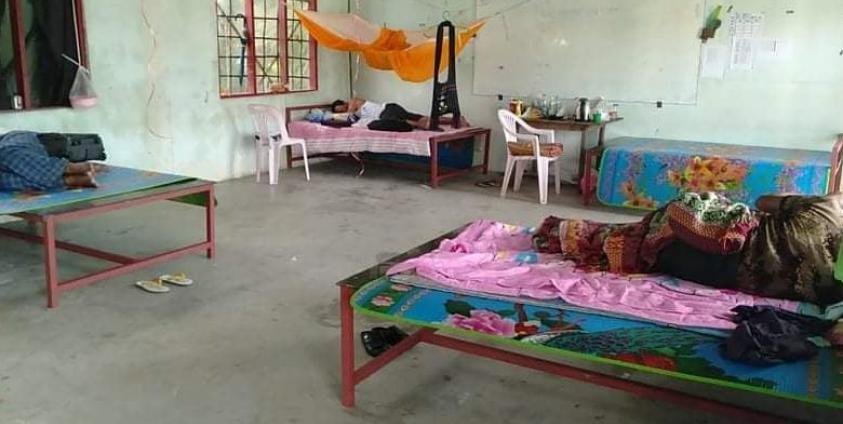The people of Burma are facing a Covid-19 crisis that is estimated to have killed 5,281 people and climbing. The international Covid-19 data collection organization, Worldometer calculates, as of 20 July 2021, Burma’s covid cases reached 234,710. As testing is non-existent and most hospitals are turning people away without a test, these figures are likely to massively underestimate the real numbers.
The reality behind the statistics is brutal. A health system that has been under-resourced and driven into the ground for decades by the military and who now lists doctors, nurses and health workers as targets for arrest.
Humanitarian groups have reported there have been at least 200 attacks on health workers and facilities that have left at least 17 people dead. It is estimated that more than 400 arrest warrants for doctors and 180 for nurses have been issued for violating Section 505 (A) of Myanmar’s penal code.
Insecurity Insight and an alliance of international organizations working in health and human rights released a paper that found between 11 February and 11 May – 157 healthcare workers were arrested, 32 were wounded and 12 killed.
The independent Assistance Association of Political Prisoners reported as of 19 July, 919 people have been killed and 6,828 arrested by the military.
A health worker, Hnin Hnin* explained to Karen News, “public hospitals can’t treat people, private hospitals will do so for as much as USD$12,000 –you can’t fight a pandemic in these conditions, the situation will only get worse.”
Hnin Hnin told Karen News, “we are willing to help people, but the military has made it impossible to work effectively. Oxygen suppliers are under orders to prioritize the military, this places ordinary people at the back of the queue. In Yangon, we hear the military has shot at people queuing to buy oxygen or to refill cylinders.”
Many city-based people under threat from the military fled to regions under the control of ethnic armed organizations for their safety.
Military attacks on ethnic villages increased and resulted in 70,000 villagers displaced who are now at risk of dengue, malaria, dysentery, respiratory and COVID-19 infections.
COVID-19 Emergency Response Committee officials of the Karen Health and Welfare Department (KDHW) under the Karen National Union said they are putting in place COVID-19 prevention programs, such as health education campaigns, and set up Fever Clinics in populated areas. as there are to prevent and treat COVID-19.
Padoh Saw Diamond Khin, department head of the KDHW told Karen News; “there are many challenges, we’re stepping up our COVID-19 responses, but we’re short of medical supplies to effectively carry out our programs.”
Padoh Saw Diamond Khin explained the difficulty in getting tests.
“In all seven districts, there is only one PCR test in Klo Yaw Lay, as a result, our PCR machine can no longer read the virus when the virus is changing strains. This is difficult for us to cope with.”
Padoh Saw Diamond Khin said that despite the shortfalls, the KDHW committee is working to improve protection in each district.
“We will increase health education campaigns, including going from place to place with loudspeakers providing prevention messages to the community. Burma is now facing oxygen shortages to help treat COVID-19 patients and we also will have a similar situation if cases continue to increase. For now, we don’t have many patients with severe symptoms, so we are still able to cope with our current capacity.”
Hnin Hnin said they have worked throughout the hospital system in Burma and told Karen News this is the worst it’s ever been.
“We know there’s valuable medical equipment and urgent medicine that’s needed to help treat the virus, but we’re unable to get it processed through customs because of military orders. I think many more people will die unnecessarily unless there is international intervention.”
International help is available and willing to help, but unable to access the country. The military coup leaders are unwilling to lift its martial restrictions on the country, its citizens and its political opponents.








